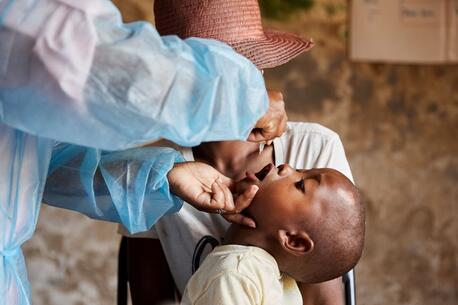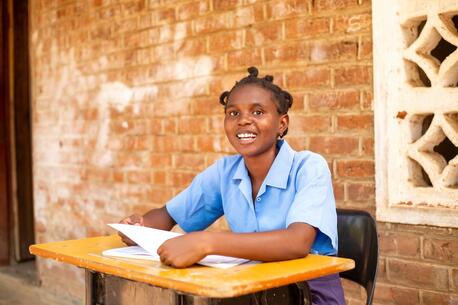UNICEF: Committed
to Educating Girls
UNICEF is helping countries build stronger educational systems that address girls’ needs and bolster their progress. UNICEF also supports local programs that remove major obstacles to girls' education, such as child marriage and child labor.
UNICEF is committed to making sure girls are learning and thriving
Globally, girls ages 10 to 14 spend roughly 50 percent more time than boys doing household chores like caring for younger siblings, feeding livestock and fetching water — responsibilities that can interfere with schooling.
And when families are pushed deeper into poverty, the pressures on girls to go to work or to marry increase; without the daily structure and safety that schools provide, risks of exploitation and abuse multiply. Girls ages 12 to 17 are at particular risk of dropping out of school for good — and suffering layered and lasting harms as a result.
In Afghanistan in particular, girls face many barriers to education.
UNICEF works relentlessly to keep girls in school and to protect their rights
UNICEF is helping countries build stronger educational systems that address girls’ needs and bolster their progress. UNICEF also supports local programs that remove major obstacles to girls' education, such as child marriage and child labor.
As a leader in WASH, UNICEF is also working nonstop to improve access to safe water, which helps ease the water burden on girls so they can spend more time learning; improvements to sanitation and hygiene facilities in schools facilitate girls' attendance during their menstrual periods.
Helping to make education more affordable for families
Another way UNICEF supports girls' education: by providing essential learning supplies such as books, backpacks, desks and other basics — reaching tens of millions of children with learning materials every year.
UNICEF is helping to make education more affordable through its humanitarian cash assistance program, which eases economic pressures on families that can force children to go to work instead of school.
And UNICEF keeps innovating to keep students learning — even in a crisis: Working with governments and other partners, UNICEF is working to close the greater digital divide girls face — ensuring their equal access to online education and other digital tools within their household or community.



